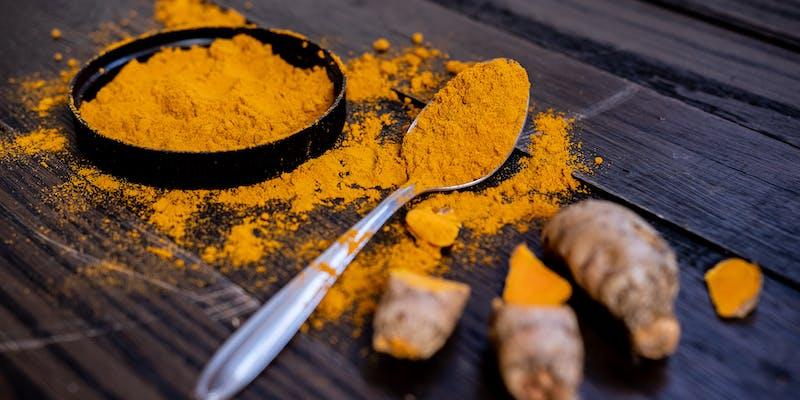Regular gym-goers perform all the appropriate exercises to gain muscle. Nevertheless, the time you devote to the gym is probably wasted partly if you fail to refuel afterward properly. Following exercise, the nutrition consumed is critical for glycogen replenishment, muscle growth, recovery speed, and the mitigation of muscle soreness. To optimize results and facilitate muscle recovery, it is logical to allocate a portion of one hour per week to meal planning.
Protein-rich and nutrient-dense carbohydrates should be given precedence when planning a diet to promote muscle recovery. To repair and develop, recovery nutrition focuses on rehydrating and refueling. Numerous palatable and nutritious foods are available to support muscle repair and recovery, irrespective of one's dietary orientation (flexitarian, vegetarian, vegan, pescatarian, or keto).
These are some of the best foods to incorporate into your diet, in addition to consuming a substantial amount of water and protein at each meal. Doing so will facilitate a speedier recovery, alleviate muscle soreness during non-exercise periods, and support the progression of muscle strength.
Spinach
post-workout foods like spinach are nutrient-dense. In addition to vitamins A, C, and K1, magnesium, potassium, calcium, and iron are abundant. As you exercise, sweat removes electrolytes. Spinach's magnesium and potassium content can help restore these nutrients and speed recovery. Not only after strenuous workouts, spinach is beneficial—any meal benefits from its adaptability. Spinach is perfect for breakfast, lunch, pasta, and casseroles. Drinking green smoothies on the go is another easy way to eat them.
Turmeric

Turmeric has long been used as a home cure remedy for diverse ailments, and grandmothers frequently encouraged warm turmeric milk. Recent studies, including a 2012 European Journal of Applied Physiology, to measure and publish this report that support this conventional knowledge. Turmeric has long been used as a home remedy for various illnesses, and grandmothers often recommended warm turmeric milk.
According to the study, turmeric greatly reduces muscle damage and improves repair after strenuous workouts. This effect enhances recovery and next-workout performance. Turmeric's anti-inflammatory properties reduce muscle pain and swelling. Turmeric is easy to eat. It can be made with hot water or turmeric latte, known as haldi milk in many parts of India.
seafood
Omega-3s cannot be produced independently by the body, unlike many other nutrients. Dought-onset muscle soreness (DOMS), a prevalent issue following exercise, can be significantly mitigated with these vital fats. Omega-3s are crucial for reducing inflammation and promoting muscle recovery.
Ideally, two to three times per week, incorporate salmon into your regimen, as it is an abundant source of these fats. This activity promotes a well-toned physique in addition to facilitating muscle recovery. Emphasizing the numerous benefits of incorporating omega-3-rich foods into one's diet as post-workout food, the American Heart Association advises this frequency of fish consumption for cardiovascular advantages.
Ricotta and Cottage Cheese
In the fitness industry, dairy is universally acknowledged as an essential dietary component that promotes and enhances muscle growth. Furthermore, consuming as little as 9 grams of ricotta or cottage cheese could induce substantial muscle growth. This observation gains prominence by shifting attention away from the conventional favorite, yogurt, and towards these underappreciated representatives of the dairy industry.
Ricotta and cottage cheese do not simply excel in protein content; they also offer crucial vitamins like calcium and vitamin B12, supporting common fitness and well-being. Notable for their versatility in recipes and fitness blessings, ricotta, and cottage cheese have experienced a surge in reputation in nations including Italy and the US.
Sweet Potatoes
Understanding the stability of protein for muscle repair and carbohydrates for strength and energy replenishment is important for the most beneficial health. In this context, candy potatoes are a splendid source of carbohydrates, specifically helpful for refueling strength ranges after severe workout routines. They are not simply carbs; they may be complicated carbohydrates, meaning they provide sustained energy release without spikes in blood sugar.
Sweet potatoes are also rich in dietary fiber, vitamins, and minerals, contributing to typical health and assisting muscle recovery. Their low glycemic index makes them a favored preference for athletes and fitness fans aiming to keep regular strength levels at some point in the day. Countries like the United States, China, and Uganda lead in candy potato manufacturing, emphasizing its global significance as a nutritional staple.
Eggs

Eggs are strongly recommended for muscle repair due to their protein content ranging from six to seven grams per egg. This remarkably resembles a cup of yogurt in terms of protein content. Omega-3 fatty acids, selenium, vitamin A, and zinc are vital nutrients found in eggs and protein.
It is noteworthy that empirical evidence indicates that when whole eggs are consumed, the response to muscle proteins is more pronounced and sustained than when only the whites are consumed. Eggs exhibit brilliant versatility aside from their large nutritional value. They are tremendously adaptable and can be included in a huge variety of meals, including breakfast, lunch, dinner, and even a quick snack. Highly flexible and a realistic addition to any day-by-day post-workout food regimen, they can be seamlessly incorporated into a bundle of recipes. Undoubtedly, no preparation is necessary.
Nuts
Omega-three fatty acids, which are considerable in nuts and seeds, are essential for ensuring bone and joint health by lowering infection rates and symptoms. Additionally, protein-enriched, those nutrient-dense foods sell muscle repair following physical activity. Walnut, chia seed, flax seed, almond, pecan, and hazelnut alternatives are noteworthy. These nutrient-dense substances are adaptable as toppings for salads, smoothies, and homemade muesli bars.
Integrating these seeds and nuts into one's daily diet has demonstrated encouraging patterns. Individuals who incorporated a handful of these into their meals reported enhanced cognitive functions and energy, according to data from 2022. The emphasis on uncomplicated, whole foods such as nuts and seeds gains greater prominence as the health industry progresses. They symbolize a global transition towards health-conscious and sustainable dietary practices, transcending mere fashion.
Featuring a protein content exceeding 4 grams and varying degrees of fiber, these 28-gram portions are a nutritious option for individuals who prioritize their health. As society progresses, incorporating these organic, amenity-laden foods into routine dining experiences transcends being a recommendation. It becomes an integral aspect of one's way of life, promoting holistic health and enduring advantages.







